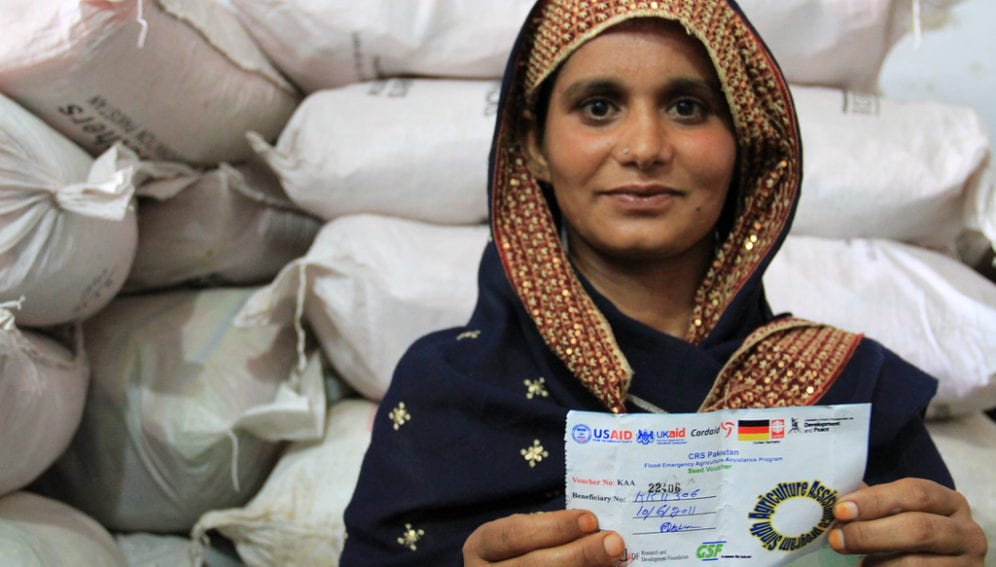By: Imogen Mathers
Send to a friend
The details you provide on this page will not be used to send unsolicited email, and will not be sold to a 3rd party. See privacy policy.
[LONDON] The UK government has pledged £50 million (around US$77 million) to a new initiative geared towards finding and scaling up revolutionary innovations for development.
Global Development Innovation Ventures (GDIV) aims to bring together diverse partners — including venture capitalists, foundations, NGOs, academics and the public sector — and tap into private and public funding to transform support for development-oriented innovations.
The project is a collaboration between the UK Department for International Development (DFID), the US Agency for International Development (USAID) and Omidyar Network, a philanthropic investment firm.
It builds on — and will eventually replace — USAID's Development Innovation Ventures programme, founded in 2010, which uses rigorous testing and staged financing to drive more cost-effective and efficient solutions to development.
It is hoped that the UK investment over five years will bring in further funding, including from USAID.
"A key objective is to find, develop and test innovations that have the potential to generate significant social impacts and returns beyond what we're currently doing," says Jonathan Wong, director of DFID's Innovation Hub, and GDIV project leader in the UK.
GDIV will launch a global competition for innovation funding, across all development sectors, and including science and technology.
Wong says: "The key criteria we're looking for is: is it cost-effective? Does it have the potential for more development impact than current practice? Is it sustainable? And is it scalable?"
“A key objective is to find, develop and test innovations that have the potential to generate significant social impacts and returns beyond what we're currently doing”
Jonathan Wong
Jeffrey Brown, division chief for USAID's Development Innovation Ventures, says that a focus on rigorous evidence will underpin the new initiative's activities.
"We think evidence is a huge deal that is often underinvested in within the development space," Brown tells SciDev.Net.
Focus on scale
For Wong, a Kenyan money transfer scheme, mPesa, is a model that epitomises what GDIV is looking for: DFID invested seed funding, and the service has now grown to become the most developed mobile finance system in the world — reaching millions of people across East Africa and further afield.
"GDIV is looking for the next mPesa," Wong says.
Kim Scriven, research and innovations officer at the Humanitarian Innovation Fund, a UK-based organisation that supports the development of innovations, believes GDIV's funding and scaling focus is "vital" for innovation growth.
"There's a naive view that innovation is just something that happens, and is about creativity, serendipity and the 'light-bulb' moment," he says.
"Of course, that's part of it. But it's also about having a systematic process to develop ideas in a rigorous way that manages risk and uses resources efficiently."
Wong tells SciDev.Net that the initiative will not discriminate on the basis of where innovators come from or what sector the innovations are in.
"We'll look to fund academics, the private sector, NGOs — a whole range of individuals or organisations, to capture those great ideas that … don't quite fall into sector-specific buckets, or that straddle several sectors," he says.
The role of the private sector
Wong tells SciDev.Net that GDIV will "try to develop a pipeline for investment-ready innovations, provide a focus for social investors and actually unlock some of the commercial capital that's out there".
Scriven says that leveraging private-sector investment in innovation for development is "important and could be really beneficial".
"I think humanitarian agencies frankly don't have the money to invest in pure research and development of new products and services, so being able to leverage the private sector is critical," he says.
Wong adds that one of the key reasons for getting the Omidyar Network involved — apart from its private-sector perspective — is to "tap into its network, which goes deep across Africa".
Similarly GDIV will draw upon USAID and DFID's extensive global networks.
See below for a video about the Omidyar Network:
Don't Start A Foundation: Pierre Omidyar Ignores Early Advice, Then Reconsiders from Omidyar Network














